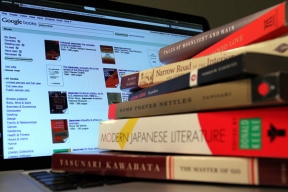
A recent study by the United States Government Accountability office showed that the average prices for textbooks have risen 82 percent in just ten years. Many expected that internet access would help bring costs down, but the college textbook industry appears to be keeping students from saving money by using such tactics as college specific books, book bundling and eTextbooks, all of which raise prices. Luckily there is something you can do about it. You just need to do a little homework before classes start. “There are many ways you can save when buying textbooks that the college textbook industry doesn’t want you to know about,” says Chris Manns of the price comparison websites CheapestTextbooks.com and TextbookRentals.com. Both free services help students locate the cheapest prices for millions of books. Here’s his list of the ways the college textbook industry gets you to pay more, and some tips for paying less:

College Specific Books: Colleges have started asking students to buy college specific books. They take a commonly used textbook and have it printed with the college name and course number on the cover. This gives the book a new ISBN (International Standard Book Number) that is typically only available at the college it was made for. Ask the professor if it’s OK to use the book’s common version. “The common version will be available online and, in almost all cases, be much cheaper and apart from the cover, it’ll be the exact same. When you rent or buy it online, you’ll be able to rent or buy it used from anybody,” Manns says.
eTextbooks: eTextbooks are usually more expensive than buying a book used or renting it, and they typically expire after six months or a year. Shop around. Most eTextbooks are available from multiple sellers. If you have the option, go old-school and buy the hard cover or paperback, which will typically be much cheaper. “That way you can keep it if you want, or you can sell it later,” he says.
Timing: Sometimes students don’t learn what textbooks they need until a couple of weeks before classes start, giving them little time to shop around. Don’t worry too much about getting your books before classes start. If you don’t mind a little inconvenience, then wait until you’re a couple of days into the school year before buying. “The professor might even tell you that you don’t need the book,” Manns says. If it’s required, you can shop online and still have the book within a couple of days.
Chris Manns is the managing director of the price-comparison websites CheapestTextbooks.com and TextbookRentals.com.








